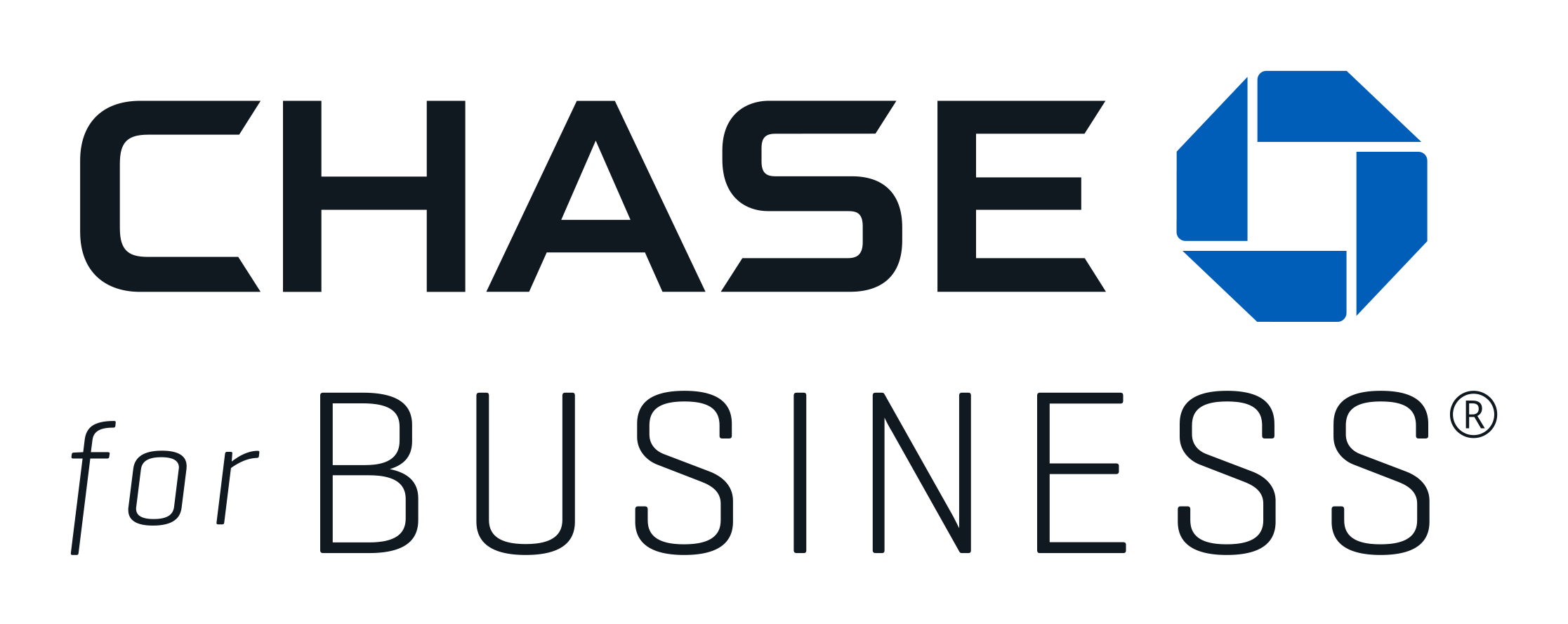How to Open a Business Bank Account
You need to be at least 18 years old and operate a business in the U.S. to open a business bank account.

Many, or all, of the products featured on this page are from our advertising partners who compensate us when you take certain actions on our website or click to take an action on their website. However, this does not influence our evaluations. Our opinions are our own. Here is a list of our partners and here's how we make money.
Every business should have a business bank account. To open one, you need to:
- Gather personal ID documents and business formation documents.
- Choose a bank account.
- Apply online or at a branch location.
- Transfer money into the account.
New LLCs, corporations or partnerships must take additional steps:
- Formalize the business's legal structure.
- Apply for an employer identification number (EIN). You can get an EIN instantly on the IRS website.
You can open an account online in a few minutes. Ready to pick one? Here are NerdWallet’s recommendations for the best business bank accounts.
Looking for a business checking account?
See our overall favorites, or choose your business type to find the best options for you.
What do you need to open a business bank account?
At a minimum, you'll need your name, address, date of birth and a government-issued photo ID. Beyond that, requirements vary by bank and your business entity type.
Here’s what you need to open a business bank account.
Personal information
Businesses with multiple owners typically need details for everyone with a 25% or more ownership stake.
- Government-issued photo identification. Usually a driver’s license or passport. Some banks may ask for two types of ID.
- Home address. You need to have a U.S. mailing address to apply for most business accounts. Banks typically require a physical address rather than a P.O. Box.
- Personal email and cell phone number. Financial institutions use this information for two-factor authentication. A handful of online business checking accounts are mobile only and require a cell phone number to apply for an account.
- Date of birth and Social Security number. Banks use this information to verify your identity, which law requires them to do.
Business information
Most business account applications will ask for basic business details, such as:
- Employer identification number. You may also need to provide corresponding documents from the IRS. Sole proprietors and single-member LLCs may be able to use their Social Security number instead.
- Business name and trade name or “doing business as” name, if you have one. No official business name? You can use your own name.
- Business address and phone number. You can use your home address if you don’t have an office or a storefront.
- Business entity type. Sole proprietorship, partnership, corporation or LLC.
- Date your business was formed. If your business is registered with the state, use that date. If not, use the date the company was founded.
- Industry and type of business you operate. Certain types of businesses cannot open a business account with most banks. These include gambling, cannabis and adult entertainment companies.
- Estimated monthly transactions. Some banks will ask for expected monthly ACH, wire transfers or mobile check deposits (the number and/or the dollar amount). It's OK to use estimates.
🤓 Nerdy Tip
You can open a business bank account without an EIN — you'll just use your Social Security number or ITIN instead. You can't open a business bank account with only an EIN, however. Banks have to verify their customers' identities. That means you'll always have to provide personal details like an ID or your SSN. Business documentation
The documents needed to open a business bank account depend on how your business is set up. Here are common requirements for different entity types:
- Sole proprietorships. Business name registration certificate, business license.
- Partnerships. Partnership agreement, business name registration certificate, business license, state certificate of partnership.
- LLCs. Articles of organization, LLC operating agreement, business license.
- Corporations. Articles of incorporation, corporate bylaws, business license.
How long does it take to open a business bank account?
Applying for a business bank account should only take a few minutes. Most businesses can apply online. But banks with branch locations generally take in-person applications too.
Sometimes, providers approve online applications almost immediately. Bluevine says it reviews most within minutes, for instance. But expect the process to take a couple of days typically. Once approved, you can access your new account right away.
You can order checks and request employee debit cards at that point. Banks will ship your own business debit card automatically. It should arrive in around 7 to 10 business days.
How much does it cost to open a business bank account?
You can open most business bank accounts with $0. But some business checking accounts require an opening deposit, which typically ranges from $25 to $100.
If your business bank account has a sign-up bonus, review the terms carefully. Many promotions require you to deposit a certain amount of money within the first 30 days. You then must maintain an average balance for several months.
If your account charges a monthly maintenance fee, it generally isn’t due until the end of your first statement cycle. And you may get a little more time for free.
Chase's business account, for instance, doesn’t charge a monthly maintenance fee for your first two statement cycles. Bank of America's doesn’t charge one until the end of your 13th statement cycle. (Want to avoid those fees altogether? Here are our best free business checking accounts.)
🤓 Nerdy Tip
Avoid depositing all your business’s assets at once. Most business accounts place a longer hold on deposits for new accounts, and you could lose access to those funds for 7 to 10 business days. Other accounts will flag large deposits, followed by large transactions, for fraud. What business bank account should you open?
All businesses should start with a business checking account. Choose your bank based on this account, since you’ll use it most often. As your business grows, you can shop around for money market accounts, savings accounts and more.
Here are a few of NerdWallet's top-rated business checking accounts.
Why might a bank deny your business account application?
There are a few reasons a business bank account application might be denied:
- You’re ineligible for an account. You’ll need to live and operate your business in the bank’s service area, be at least 18 years old and provide proof of your identity, like a Social Security number. This is the case for everyone who owns 25% or more of a business.
- Your business is ineligible. Illegal gambling, pornography, cryptocurrency, firearms, cannabis and money services (like currency exchange or check cashing) businesses can’t open accounts at most banks.
- You provided incorrect details. Typos on things like an SSN or EIN can slow down an application process and lead to denials.
- Your application has suspicious information. Financial institutions have to try to avoid their accounts being used for money laundering. If information about your business’s revenue or owners raises a red flag, a bank may deny your application — even if everything you’re doing is above board.
- You have a negative ChexSystems report. These reports list actions like bounced checks, overdrafts and forced closed accounts.
You can check your ChexSystems report once every 12 months for free. Take a look before you apply for a business bank account to see what it includes.
If you have a negative ChexSystems report, you can take steps to improve it. You can also shop around for a financial institution that doesn’t use ChexSystems.
Can you open a business bank account in your personal name?
Freelancers, independent contractors and other sole proprietors can open a business bank account in their name. If you have a registered “doing business as” or trade name, though, you need to include it.
Business owners who operate an LLC, partnership or other business entity should use the company’s name when opening a business bank account.
Notes from providers
* Note on American Express® Business Checking: At Allpoint® and MoneyPass® locations in the U.S., you can withdraw cash and get balance information with no fee. Access to ATMs outside of the Allpoint® and MoneyPass® networks are subject to fees by the ATM owner and/or network. ATM withdrawal limits apply. American Express applies foreign exchange fees to withdrawals in foreign currencies. American Express does not accept ATM cash deposits into your Business Checking account at this time. Visit americanexpress.com/atm-locator to find participating ATMs in the U.S.
Article sources
NerdWallet writers are subject matter authorities who use primary,
trustworthy sources to inform their work, including peer-reviewed
studies, government websites, academic research and interviews with
industry experts. All content is fact-checked for accuracy, timeliness
and relevance. You can learn more about NerdWallet's high
standards for journalism by reading our
editorial guidelines.
On this page
- What do you need to open a business bank account?
- How long does it take to open a business bank account?
- How much does it cost to open a business bank account?
- What business bank account should you open?
- Why might a bank deny your business account application?
- Can you open a business bank account in your personal name?
Starting Small: A newsletter to get your business off the ground
Subscribe for grant opportunities, product recommendations and no-nonsense advice from the Nerds. Related articles











